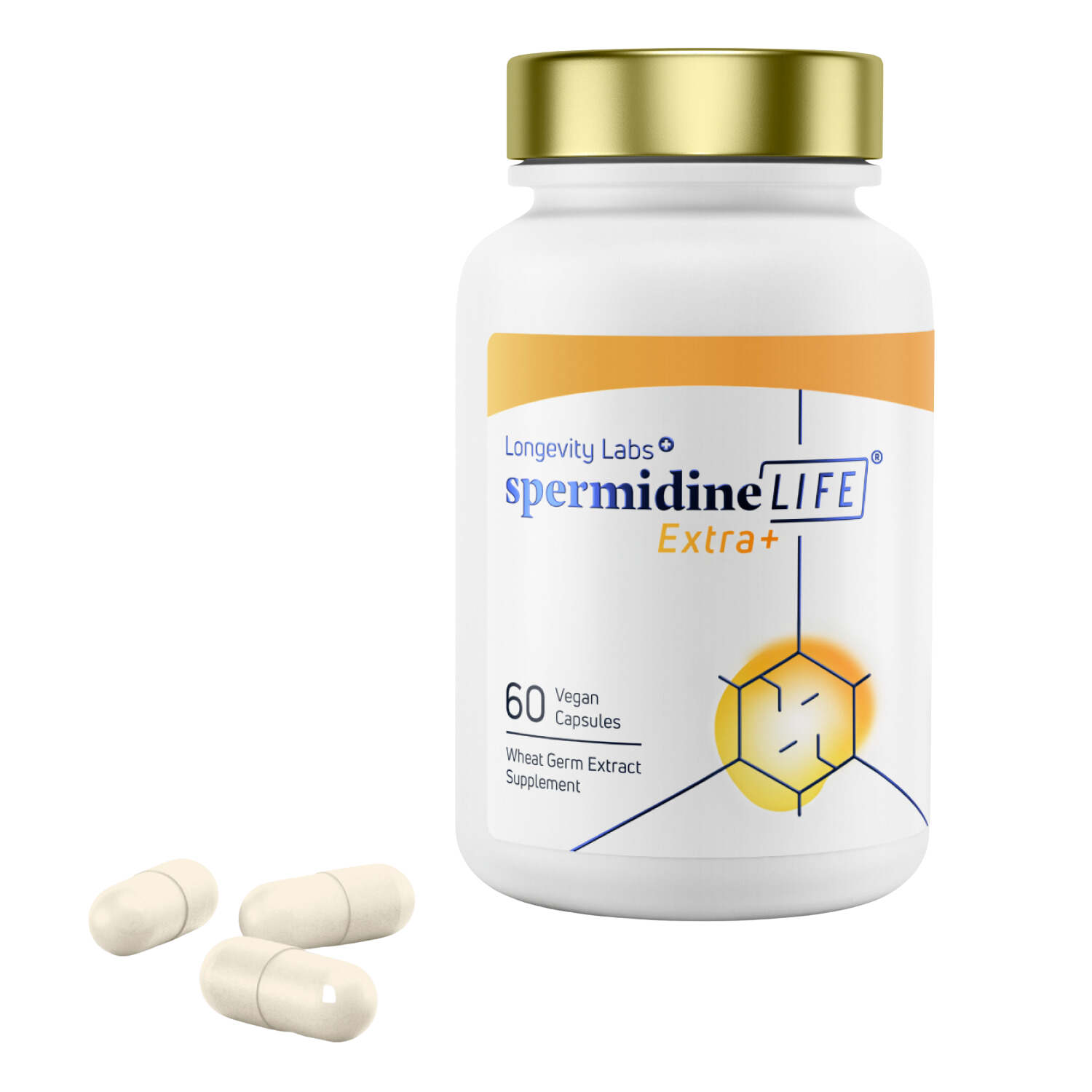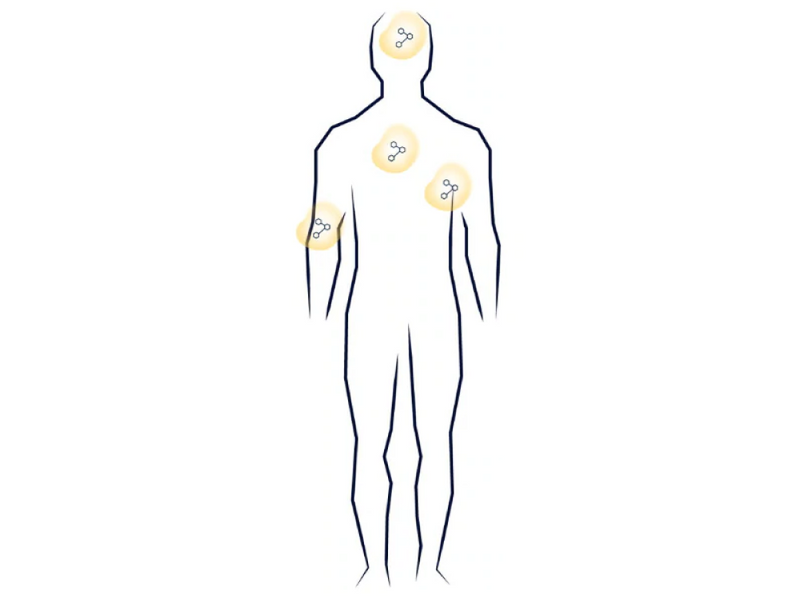-
What Is Spermidine? All You Need to Know
As we get older, many of us naturally begin to focus more on health and longevity. If you keep up with health trends, you may have heard of one particular molecule of interest - spermidine. Increasing spermidine intake through your diet has been attributed to a longer and healthier life.
Spermidine is a fascinating compound. And until recently relatively little was known about spermidine's role in longevity. Within the last 10 years researchers have linked spermidine to longer healthspans and better aging.
We now know that spermidine is a unique, naturally occurring molecule, part of a group of molecules known as polyamines. Polyamines interact with our cells to perform various critical metabolic functions.
Spermidine is found in all plants and animals and in nearly every cell of your body. In our bodies, it can come from ingested food - synthesized in the gut microbiome or synthesized in cells. Spermidine is most abundant in wheat germ. -

-
Add Spermidine to Your Diet
Did You Know?
Research indicates that our own spermidine levels start to decrease from approximately 25-30 years of age.
However, a recent study conducted in one of the well-known "Blue-Zones" could show that the spermidine levels of 90 and 100-year-olds mirror that of a young person’s body.
Exciting, right? -
Why Is Spermidine So Important?
The human body is able to break down and recycle unnecessary or damaged cell components. This renewal process is called autophagy.
Autophagy keeps our cells young and protects us from many diseases. Many scientific studies show that autophagy stagnates as we age. It’s a development we can easily counteract, either by fasting or through spermidine supplementation. (Or both!)
Research discovered that increased spermidine intake has the fascinating ability to mimic fasting. However, since the spermidine content in our cells also decreases over time, we are dependent on spermidine supplementation and spermidine-rich foods with increasing age.
-
What Does Spermidine Do?
Spermidine plays an essential role in organisms, like humans and even plants. One of spermidine's biggest and most profound functions, from which other functions stem from, is the ability to counteract aging and promote autophagy.
Our bodies are made up of cells. As we age, our cells age as well. When these cells become old or damaged, it can cause build up of dead or toxic organelle matter in our bodies, potentially leading to age-related disease and injury. Spermidine in our cells optimizes autophagy and cellular renewal.
Spermidine is also known to regulate various cellular processes including:
- DNA Stability
- Cellular growth
- Cellular differentiation
- Apoptosis (Which is cellular death as a normal part of growth and development in organisms)
Research in treating aged mice with spermidine found that it led to a decrease in arterial stiffening, which is an aging-related condition correlated to the deterioration of autophagy.
-
How Can Spermidine and Autophagy Help Our Body?
When you hear that autophagy is basically cells cannibalizing one another, it’s easy to think that it sounds harmful to your body. However, autophagy is quite beneficial and something scientists believe you should be striving for on a regular basis. While it’s still unclear how exactly autophagy creates some of these benefits, here are some benefits of autophagy:
- Removing toxic proteins from the cells that may be a cause of some age-related diseases
- Recycling residual proteins
- Providing energy and building blocks for cells
- Promoting regeneration and healthy cells
-
Research on Spermidine
Roughly 10 years ago, a research team at the University of Graz in Austria discovered spermidine’s ability to trigger autophagy. That team was led by Professor Dr. Frank Madeo.
Since this revolutionary discovery, approximately 100 international research teams have been investigating this substance and its health benefits.
The research is still in its early stage, in terms of scientific investigation. But there are few substances that are better and more intensively researched than spermidine.
One thing is certain:
These research results could have major implications on our understanding of how living cells function and age. -

Prof. Dr. Frank Madeo
A professor at the Institute of Molecular Biosciences at the University of Graz in Austria, Dr. Madeo discovered spermidine as an autophagy trigger. He’s the “research father” of spermidineLIFE® and a member of the Longevity Labs+ scientific advisory board.

Spermidine and Your Diet
A spermidine-rich diet is important for our health. Fortunately, many foods contain spermidine, such as mushrooms, soybeans, nuts, and especially wheat germ.
However, the spermidine content and foods can vary greatly. The question of bioavailability or absorption through spermidine-rich foods has not yet been finally clarified.
spermidineLIFE® is clinically tested, confirmed by external laboratories, and guaranteed to have a high spermidine content.
For you and your cells.





